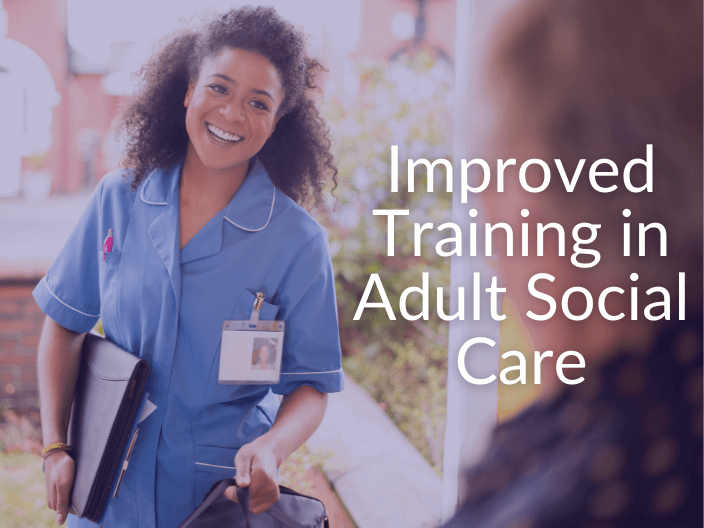The Circuit, the UK’s national defibrillator network, maps public access defibrillators. This map is used by 999 call handlers to help callers locate their nearest defibrillator. Alongside the Resuscitation Council UK (RCUK), British Heart Foundation (BHF), St John Ambulance and the Association of Ambulance Chief Executives (AACE), we encourage you to register any defibrillation...
Health and Safety at Work Statistics 2022
Every year, the Health and Safety Executive (HSE) conducts a health and safety at work survey for Great Britain. Here are the results for 2022: While the number of new work-related ill-health cases has decreased, the number of work-related stress, depression and anxiety cases has increased between 2021 and 2022. Stress, depression and anxiety account...
Safeguarding Adults Week 2022
This week, 21st-27th November 2022, organisations throughout the UK are taking part in Safeguarding Adults Week. The theme this year is Responding to Contemporary Safeguarding Challenges. This annual event was set up by Ann Craft Trust in order to raise awareness of safeguarding issues for adults. With this in mind, we want to make you more...
How do the CQC’s new assessing services work?
The Care Quality Commission (CQC) recently introduced a new approach to regulation. This is yet to impact all care providers, but will soon become the standard method of regulation and assessment. Advantage Accreditation has already provided a resource about these changes: New CQC Quality Statements. Read on to learn more about the CQC’s new...
Update on Oliver McGowan Mandatory Training
The Health and Care Act 2022 introduced the Oliver McGowan Mandatory Training in Learning Disability and Autism. This placed a requirement on all CQC registered service providers’ staff to complete relevant training in response to Oliver McGowan and his family’s experience. You can read Oliver McGowan’s story here. The new training aims to equip...
Accreditation for Beauty and Aesthetics Training Courses
Our Continuing Professional Development (CPD) accreditation is especially popular within the beauty industry. This is perhaps due to the requirements of the Hair and Beauty Industry Authority and the Guild of Beauty Therapists for professionals to complete 30 hours of CPD training every year. With ever-changing trends, methods and treatments, keeping up-to-date is crucial....
Using Logos in Marketing and Certificates
At Advantage Accreditation, we provide our centres with a range of materials branded with our logo. Approved Centre Logo When an organisation becomes an Advantage Accredited training centre they can display our Approved Centre logo. It’s up to the individual organisation to decide where they will display this. Many of our centres use the...
CPD at Work
What is a teacher CDP? In order to allow students to learn and gain knowledge efficiently, it is vastly important that both Primary and Secondary teachers are also learning- this can be done via CDP courses. Teachers are immersed in their work in such a way through traditional TED days, alongside easily accessible and...
How to Be a Private Paid Carer for the Elderly
Do you dream of being a private paid carer for pensioners while their unpaid family carers catch up on other priorities? This article covers what you'll need to start your business. You'll learn why Pershore is particularly good for private carers, what your clients expect, and how to market yourself effectively. Is Pershore a...
Workforce Development Fund Continues
In August 2022, the Department of Health and Social Care released information about training in the adult social care sector. Through improved training, the government aim to improve the development and wellbeing of social care staff across England. Introduced in 2020, the Workforce Development Fund financed over 18,000 training programmes in 2020-21 (Skills For...
Train the Trainer
What is a Train the Trainer course? A Train the Trainer course will allow members of your team to become accredited trainers and provide high quality training of their own. A Train the Trainer course will provide the necessary knowledge and skills needed to deliver effective training to other adults within a specific field...
Purpose of CPD
What is the purpose of CPD? CPD, or Continuing Professional Development, allows individuals to gain and develop essential skills, knowledge and experiences which aid them in becoming proficient in their profession. CPD is something an individual will continue throughout their career, allowing them to progress to future employment within their sector. What are the...
What does CPD mean?
Become a CPD-accredited training centre and get your courses accredited for CPD with Advantage. What does CPD mean? CPD, or Continuing Professional Development, involves developing and maintaining skills, knowledge and experience gained as you work. CPD encourages going beyond the necessary training, providing employees with clear guidelines on how to succeed within their roles...
Healthcare Accreditation
What does accreditation mean in healthcare? Healthcare accreditation ensures patients are receiving quality treatment from well-trained industry professionals and allows the maintenance of this high standard of service. Through seeking accreditation, a company’s standards of care can be increased, whilst decreasing the potential risks, and allowing healthcare organisations to work under the correct regulatory...
CPD Across the World
Continuing Professional Development (CPD) courses are one of the best ways to improve your skill set and, as a by-product, boost your job prospects in today’s ever-increasingly competitive job market. CPD certificates are recognised as valuable attributes of employees to employers nowadays. Many employers will look for accredited CPD courses on a prospective employee’s...















